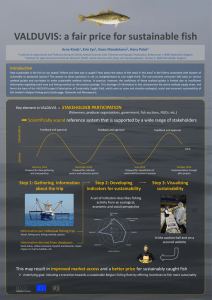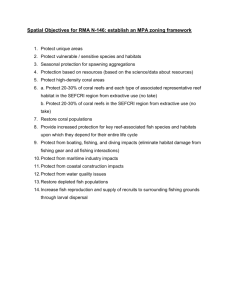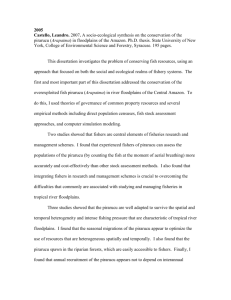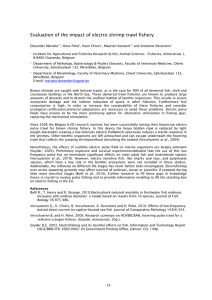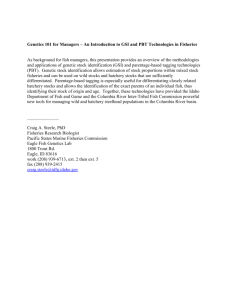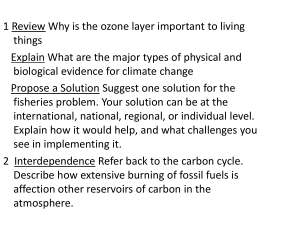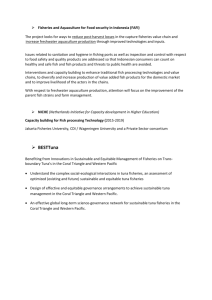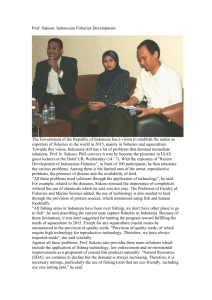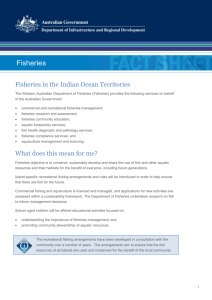Coral Triangle Initiative FAO-GEF Project REBYC II – CTI Strategies
advertisement
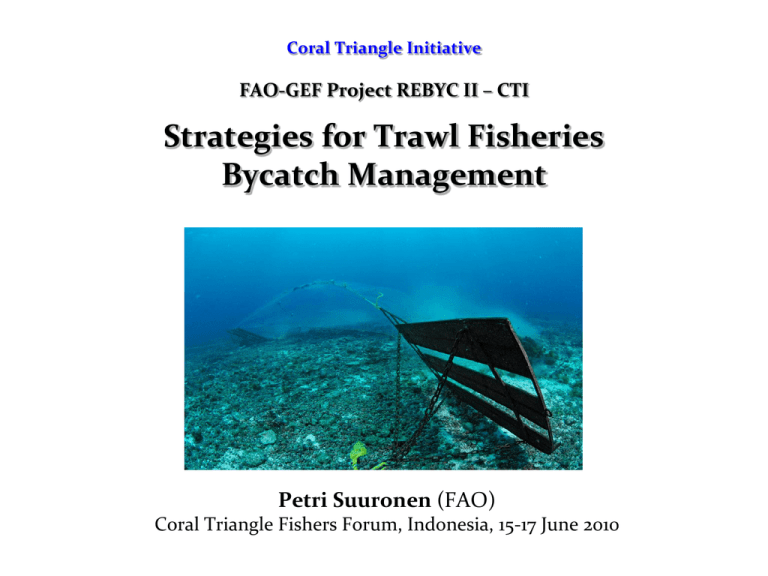
Coral Triangle Initiative FAO-GEF Project REBYC II – CTI Strategies for Trawl Fisheries Bycatch Management Petri Suuronen (FAO) Coral Triangle Fishers Forum, Indonesia, 15-17 June 2010 Why worry about bycatch? Why REBYC II is needed? • Bottom/shrimp trawl fisheries in highbiodiversity ecosystems produces large quantities of low value fish (bycatch): ‘trash fish’ increasinly juveniles • Growing concern that trash fish catch is: threatening sustainability of fisheries affecting livelihoods and opportunities decreasing food security Purpose of REBYC II – CTI project • • Improve trawl fisheries management and practices – minimise the catch of juveniles – minimise discards where such take place – avoid capture of protected species – avoid destructive impact on sensitive habitats – reduce overall footprint of fisheries on biodiversity Evaluate costs and benefits – balance between environmental well-being and human well-being – win-win-win is the goal How is this achieved? • The project will work directly with: – fishers (small scale and large scale) – fishing industry (processors, retailers) – other stakeholders • The project will engage the private sector to participate in developing and adopting best practices • The project will assist and facilitate a change and seek a regional consensus ! The project spans over: - Coral Triangle area - South China Sea Challenges • How to reduce overcapacity and excess effort ? – a major driver in IUU (Illegal, Unregulated and Unreported fishing) • Trash fish increasingly important for livelihoods – aquaculture development a strong economic driver (high demand of feed) – how to create effective incentives for fishers to reduce trash fish? – how to increase resilience of coastal livelihoods (in face of conservation pressures) • The project has a limited budget cannot address all problems! Potential solutions cooperation on zonation and closed areas self directed fishing effort controls collaboration in improving fishing practices alternative feeds for aquaculture cooperation to improve legislation We are all working towards the same goal Strong collaboration with national, regional and global partners is needed! Benefits to reduce trash fish and juveniles • Improvement of productive potential of fish stocks: improved yields in the future larger size of fish larger economic gains improved food security positive public attitude • Reduction of the operational costs: improved catch quality and value less gear drag = reduced fuel cost reduced sorting time of catch Thank you!
